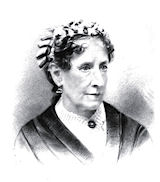Near Falmouth, Nov. 22nd, 1862.
My dear Mother:
We are still overlooking the city of Fredericksburg, which the enemy has not evacuated, disregarding our warnings. I suppose the shelling of the city will commence to-morrow, unless regard be shown by our Commanders for the Sabbath day. I must say the attack on Fredericksburg is a thing I greatly dread. The field of battle with all its horrors is redeemed somewhat by the thought that the dead on both sides have fallen in a cause sacred in their own eyes at least, and this redeems them, but wanton destruction of property and all the probable results of a successful siege develop only the most devilish propensities of humanity. To see women and children, old men, the weak and the feeble insulted and injured, makes one hate war and distrust one’s cause, and yet with the lax discipline maintained in our armies, we have too frequent examples of such outrage, the efforts of officers to check them being completely neutralized by the accursed conduct of the Press with its clamor for a vigorous prosecution of the war. In this way Pope prepared his troops for defeat. Burnside is a nobler nature, and will do what he can to prevent such stains on our honor, but he even cannot wholly arrest the effect of the savage appeals of our journals at home. You ask me what I think of McClellan. I cannot answer for myself, I have been too little under his command, but by his old soldiers — by those in whose judgment I place confidence, he is trusted as the ablest General in our army. Granting even that he is slow, they believe he had the power to have brought the war successfully to a close, had he been allowed to execute his plans without the assistance of our Executive’s wisdom. I fear we have no great soldiers in our army. Probably we had a good mediocre one in McClellan. It is doubtful whether we have that now. Poor old . . . Abe has put down his big clumsy foot —and God help us! We don’t look for assistance either to old Abe or the collective wisdom of his advisers. We hardly look to the people of the North wearied with repeated disappointment. In our wretched army system we have not much more to hope. What then? We must trust in God, and conquer. This alone can help us now. To this is our pride humbled. In hoc signo vinces. I do not despair, but hope — and while I live, will never despair — but my hopes will rise when a sincere effort shall be made to check the license and marauding propensities of our troops, when thieves and robbers shall receive speedy and terrible justice, when, in a word, we shall deserve to conquer. A righteous indignation toward the authors of the rebellion may be a good thing, but it is very likely to be confounded with a desire to pamper one’s belly at the expense of the helpless. It may be a good thing to use severe measures to bring deluded men to a sense of their errors. Still I think, were low ignorant ruffians to visit my home while I was away fighting, burn my house, lay waste my property, insult mother and sisters, beggar the little children I might love, taunt the gray hairs I might respect, leave starvation in the place of plenty, I should feel singularly strengthened in my early delusion. Yet this is a truthful picture of what the _____ and its school mean by a vigorous prosecution of the war. Cromwell’s troops were terrible soldiers — a scourge to the enemy — and they conquered because they were forbidden to stain their cause with robbery and wrong. I heard two soldiers disputing to-day, one of them belonged to the 18th Ind. Vols., the other to the 8th Ohio Vols. They were contending as to which Regiment should be entitled to the credit of having collected and sent home the greatest amount of plunder. I heard a Michigan soldier boasting that his Regiment had foisted thousands of dollars worth of counterfeit money on the people of Virginia in exchange for little luxuries. A poor woman lived near us. A party of cowards entered her house to search for booty. She implored them to leave the little that she had for her children’s sake. The brutes thrust her out of the door, until they had ransacked the poor dwelling, and then left a weak woman and feeble little children to go supperless to bed. The great, hulking, cowardly brutes! But I have no wish to point the finger further at our disgrace. I have said I do not despair, but at sight of such things I cannot but despond.
Give my best love to all my dear friends — God bless them and protect them.
Very affec’y.,
Will.



